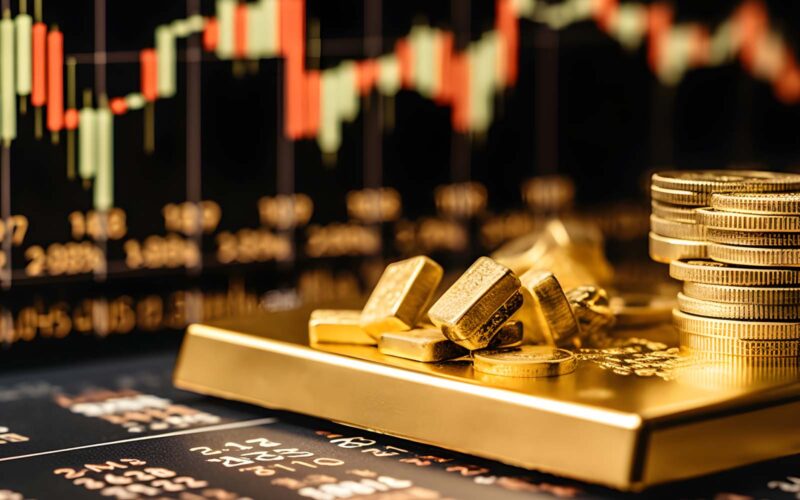Gold has been a symbol of wealth and prosperity for centuries, and its economic importance cannot be overstated. As one of the oldest forms of currency, gold has played a significant role in shaping the world economy and continues to be a highly sought-after investment. In this article, we will explore the various economic aspects of gold investment and why it holds such a crucial place in the global financial market.

- Store of Value
One of the primary reasons investors turn to gold is its ability to act as a store of value. Unlike fiat currencies, which are subject to inflation and currency fluctuations, gold has historically maintained its value, making it a reliable long-term investment. In times of economic uncertainty or market volatility, gold tends to hold its worth, making it a safe haven asset for investors.
- Hedge Against Inflation
Inflation erodes the purchasing power of fiat currencies over time, but gold has proven to be an effective hedge against inflation. When the prices of goods and services rise, the value of gold typically increases as well. Investors often turn to gold during periods of high inflation to protect their wealth from diminishing purchasing power. This makes gold an important asset for diversifying investment portfolios.
- Diversification
Gold bars plays a crucial role in diversifying investment portfolios. It has a low correlation with other asset classes, such as stocks and bonds. Adding gold to an investment portfolio can help reduce overall risk and increase potential returns. During economic downturns or stock market crashes, when other assets may suffer, gold often holds its value or even experiences price appreciation, providing a counterbalance to potential losses.
- Demand and Supply Dynamics
Gold's economic importance is also driven by the dynamics of its demand and supply. While the supply of gold is limited and cannot be increased significantly, demand remains robust. Gold is used not only in jewelry but also in various industries, including electronics, dentistry, and aerospace. Additionally, central banks and individual investors continue to accumulate gold, further driving up demand. The scarcity of gold combined with its increasing demand contributes to its value as an investment.
- Job Creation and Economic Growth
The gold industry also plays a vital role in job creation and economic growth. Gold mining and refining operations require a significant workforce, both directly and indirectly. These operations generate employment opportunities in mining communities, supporting local economies. Moreover, gold exports contribute to a country's export revenue, boosting overall economic growth.
- Confidence and Stability
Gold investment fosters confidence and stability in the financial system. Central banks and governments around the world hold gold reserves as a form of security. These reserves act as a safeguard against economic crises or currency devaluations. The presence of gold in a country's reserves instills confidence both domestically and internationally.
Conclusion
Gold investment holds immense economic importance due to its role as a store of value, hedge against inflation, diversification tool, demand and supply dynamics, contribution to job creation and economic growth, as well as its ability to foster confidence and stability in the financial system. As investors seek to protect and grow their wealth, gold remains a reliable and vital asset in their portfolios. Thus, understanding the economic significance of gold investment is crucial for individuals and financial institutions alike.
 icons at the top right corner of the subsection.
icons at the top right corner of the subsection.